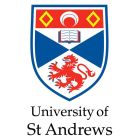Statistics
Statistics is a branch of mathematics dealing with the collection, analysis, interpretation, presentation, and organization of data. In applying statistics to, for example, a scientific, industrial, or social problem, it is conventional to begin with a statistical population or a statistical model process to be studied. Populations can be diverse topics such as "all people living in a country" or "every atom composing a crystal". Statistics deals with all aspects of data including the planning of data collection in terms of the design of surveys and experiments. See glossary of probability and statistics.
Economics
The field of economics is not exempt from the consequences of chaos and complexity. Marketplaces are indeterminate; value is subjective; and outcomes are subject to interpretation. Economic forecasting is just as nebulous, being based on the probability of statistical information that may or may not be accurate.
L.K. Samuels, In Defense of Chaos: The Chaology of Politics, Economics and Human Action, Cobden Press (2013) p. 16.
Statistics
Politicians use statistics in the same way that a drunk uses lampposts — for support rather than illumination.
Andrew Lang, in a 1910 speech: as quoted in Alan L. Mackay, The Harvest of a Quiet Eye (1977), and reported in Chambers Dictionary of Quotations (2005), p. 488.

